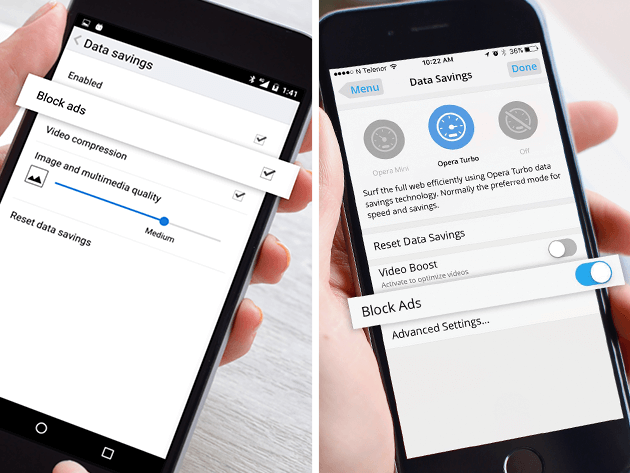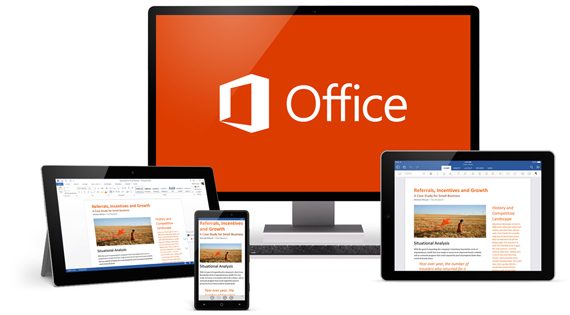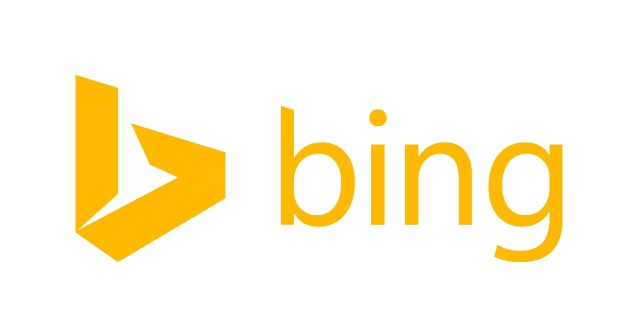
Germany says -- yet again -- that adblocking is legal
Countless numbers of web users are completely in love with adblocking, but there are those who have tried to have it deemed illegal. Adblock Plus has been in court over this before, and today a German court has ruled, once again, that its operations are entirely legal.
Publishing house Axel Springer sued Adblock Plus, saying that no company should be able to interfere with the display of ads. Axel Springer lost its case last year, but decided to appeal. Using a recent law to attack Adblock Plus' Acceptable Ads program, Axel Springer tried to get the adblocker banned. This failed, but Adblock Plus has been forced to offer free whitelisting to the publisher.

Twitter monetizes emoji with targeted ads
I don't consider myself a millennial, but according to some sources, my year of birth makes me one. Other sources list me as a "Gen Xer". No matter the box in which you put me, I love emojis -- something often associated with millennials. Why do I love them? As someone who recognizes the value of body language in communication, the written word can often lack sentiment, leading to misunderstandings. Emojis can enhance your emails, texts, and tweets, helping the reader to better understand your intention. In other words, they aren't inconsequential.
As emojis become more popular, companies will undoubtedly try to somehow monetize their use. Today, Twitter announces just that. The social network will offer targeted advertising based on a user's emoji use. This is significant, as according to Twitter, more than 110 million emojis have been used in tweets in the last couple years. Whoa.

Opera now lets you block ads on Android, iOS and Windows 10 Mobile
Opera Software made a bold move earlier this year when it introduced a native ad-blocker in its desktop Opera browser. While controversial, this feature is not enabled by default though promises to offer some major benefits, like a 40 percent boost in performance compared to an extension like AdBlock Plus.
However, folks are not only saying "No" to advertisements on their PCs but also on their smartphones and tablets. In fact, mobile ad-blocking usage has seen a 90 percent rise year-over-year, with more than 400 million devices said to run an ad-blocker. The latest versions of Opera Mini for iOS and Windows 10 Mobile and Opera for Android now cater to that growing audience too, as they too feature a built-in ad-blocker.

Facebook: "We're not listening to your phone calls to deliver targeted ads"
Facebook has issued a statement denying mounting rumors that the company uses smartphone microphones to listen in on private conversations. The allegations have circled for some time, but have most recently been voiced by Kelli Burns, a mass communication professor at the University of South Florida.
In her own testing, Professor Burns said that after discussing certain topics within earshot of her phone, she would then see ads relating to those topics on Facebook. Just like the OK, Google feature of Android, the Facebook app does have a feature that listens out for user input, but the company says this data is not stored and certainly not used for ads.

420 million mobile device users block ads
Businesses whose revenue come from mobile ads will seriously have to consider an alternative, because news just came in about a significant rise in mobile ad blocking usage.
According to a new report by PageFair, a start-up helping publishers get around ad blockers, and mobile app tracking company Priori Data, there has been a 90 percent rise in mobile ad blocking usage, compared to the same period last year.

Microsoft sneaks even more ads into Windows 10 via the Ink Workspace
With online ad blocking becoming ever more popular, companies have to find new ways to push their products at people. With Windows 10 -- which is being aggressively pushed onto people -- Microsoft has found the perfect vehicle.
We've already seen ads in the Start menu and ads on the Lock Screen, but it doesn't end there. Windows Insiders are also treated to ads in one of the new features available in the preview builds -- the Windows Ink Workspace.

Microsoft says it will stop spamming Android users with Office ads in the notification tray
It feels like we complain about Microsoft a lot here. We do; in recent months there has been a lot to get upset about. There has been a lot of negativity surrounding Windows 10, so let's have a change of subject. Now Microsoft is spamming the Android notification tray with ads for Office.
The notification tray in Android serves a very specific purpose. There's a clue in the name -- and it's nothing to do with advertising. Android user Thom Holwerda was upset this week when Microsoft Office for Android starting to spam him with ads for apps he already had installed. There are many questions here, one of which is why is Microsoft ignoring Google's guidelines and using the notification tray to display ads?

Facebook introduces new cookies policy and allows users to opt out of tailored ads on non-Facebook sites
When you hit Facebook today, you may well notice a new Cookies Policy warning at the top of the page. It states: "To help personalize content, tailor and measure ads, and provide a safer experience, we use cookies. By clicking or navigating the site, you agree to allow our collection of information on and off Facebook through cookies. Learn more, including about available controls: Cookies Policy". But what is it all about?
Facebook hasn’t made a great deal of fuss about it, but the social network has introduced not only a new cookies policy, but also made changes to ads. It is now possible to opt out of seeing tailored ads on non-Facebook sites. Facebook says it is all part of creating "a better online advertising experience for everyone".

UK carrier Three will block ads for a day
In an attempt to improve the daily lives of its customers, Three is planning to block ads for all of the customers using its network in the UK.
The company will block all mobile ads for its users for one day next month. The trial will last for 24 hours but if it is received successfully by Three customers, the company has hinted that it would be willing to expand its experiment.

Trojan hijacks search results to generate advertising revenue
There’s a Trojan out there that forces infected computers to automatically click on advertising banners. By doing so, its creators are earning money while businesses paying to be seen are just burning a hole in their budgets without achieving anything.
Those are the results of a new report by security firm Bitdefender, which has identified the Trojan as Redirector.Paco. According to the company’s press release, the Trojan has, since 2014, infected 900,000 machines.

Microsoft implements a blanket ban on computer support ads on Bing
Microsoft is following in Google's footsteps and cleaning up the ads that can be displayed on its network. After Google announced that AdWords could no longer be used to push payday loans, Microsoft has decided to ban ads for computer support services from Bing.
What's interesting here is that Microsoft has taken an incredibly hard line and issued a complete blanket ban on all technical support ads -- no exceptions. The aim is to weed out fake support ads and scams, but it will also impact on legitimate services.

Publishers to lose $27 billion by 2020 thanks to ad blockers
Publishers are set to lose $27 billion by 2020 thanks to ad blockers such as AdBlock Plus, a new report by Juniper Research says. Keeping in mind that the digital advertising spending worldwide sits at $197.48 billion (expected to grow to $252bn by 2018) according to Statista, that means ad blockers will account for almost 10 per cent of total digital advertising market.
Ouch.

Google slaps an AdWords ban on payday loans and other high interest finance services
In recent years Google has started to tighten up on the products that can be promoted through its services. After cracking down on porn, the latest victims of the ban hammer are payday loans and other high interest finance services.
Starting July 13, it will no longer be possible to advertise such products through AdWords. Ads for loans with repayment deadlines of under two months are now outlawed, as are ads for loans with high interest rates.

How to block ads in Microsoft Edge in Windows 10
Microsoft Edge, the default web browser in Windows 10, has potential, but there’s still a long way to go until it can rival the likes of Firefox or Chrome.
Microsoft is working hard on improving the browser however, and recently introduced support for extensions, although there aren’t many to choose from at the moment. There are plans for an Adblock Plus extension in the future, but if you want to block ads in the browser now, there is a way of doing this.

Facebook's mobile ads boosting revenue
Facebook has put other tech giants to shame by comfortably beating analyst expectations in the last quarter, with revenues over 50 percent up thanks to surging mobile advertising sales.
As mobile web browsing continues to grow throughout the world, advertisers are realizing that taking a mobile-first approach has the potential to be extremely lucrative. Facebook has looked to capitalize on this by improving its mobile app and expanding its live video solution, both of which have attracted advertisers.
